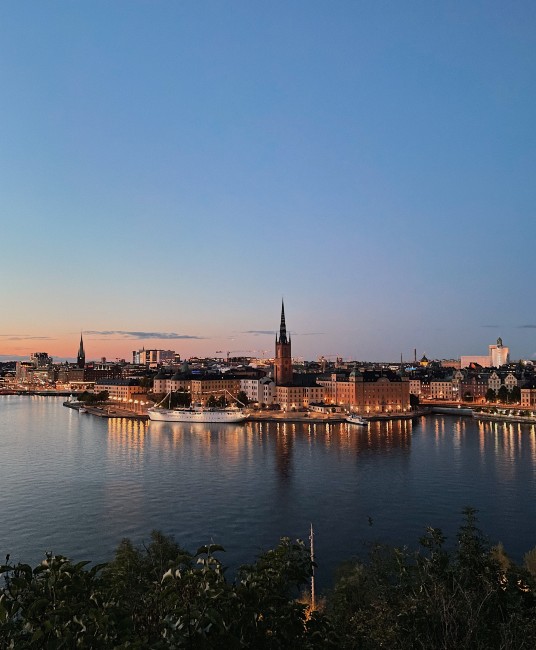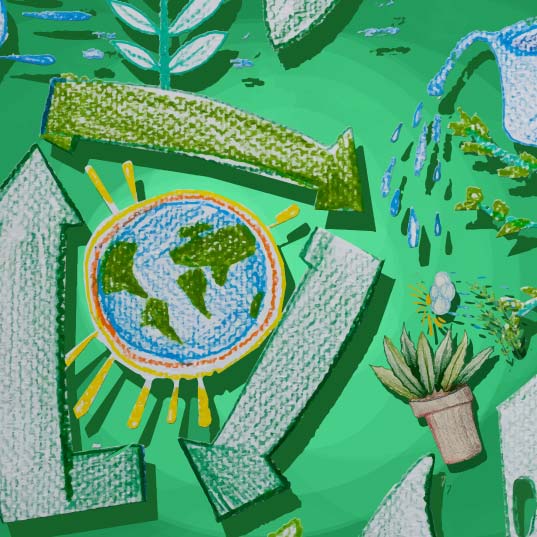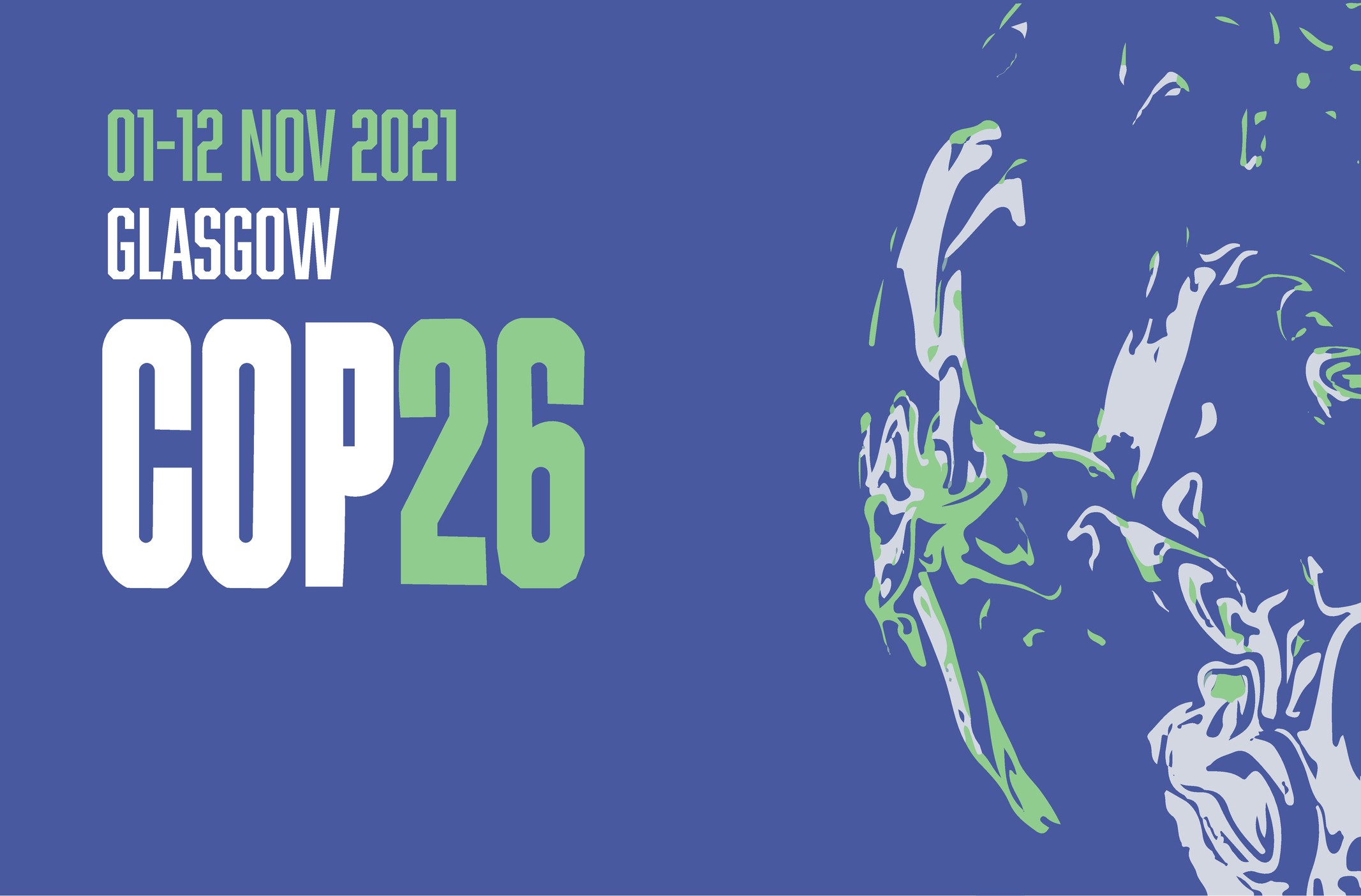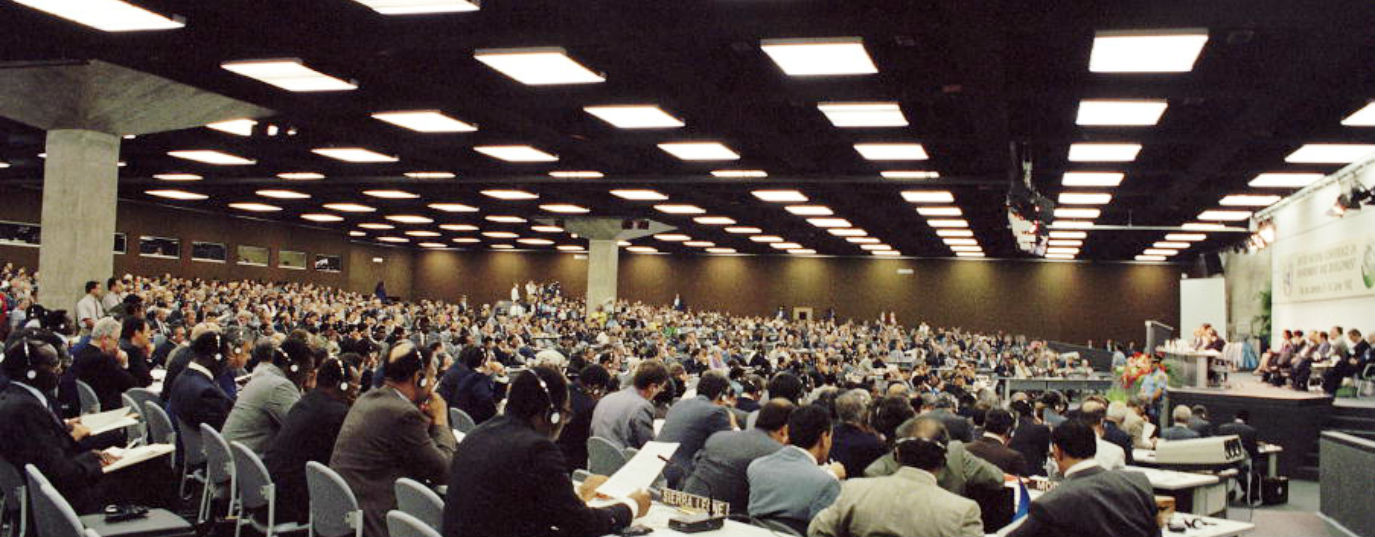Stockholm +50: keys, objectives and solutions to climate change
It‘s been 50 years since the Stockholm Summit, the first major global environmental gathering. This year's summit will be another opportunity to bring about collective change towards a more sustainable, equitable and resilient world.
Both the scientific community and international organisations never tire of mentioning it: the time to act on climate change and for sustainable development is now. And that’s precisely the goal of the new Stockholm conference, an environmental meeting that aims to remind us that it is our opportunity - and responsibility - to transform the planet into a sustainable and prosperous place for all.
What will I read about in this article?
- Background
- New Stockholm conference
- Unfinished business regarding sustainable development
- The keys to Stockholm +50
- Solutions
The 1972 Stockholm Conference
 "Man is both the work and the maker of his environment". These words mark the beginning of the first of the conclusions that can be read in the Stockholm Declaration on the Human Environment 1972. This document was born out of the Stockholm conference, one of the first international meetings of enormous global significance, which focused on the environment and human responsibility over it. At that meeting, the interconnections between development, poverty and the environment were recognised worldwide.
"Man is both the work and the maker of his environment". These words mark the beginning of the first of the conclusions that can be read in the Stockholm Declaration on the Human Environment 1972. This document was born out of the Stockholm conference, one of the first international meetings of enormous global significance, which focused on the environment and human responsibility over it. At that meeting, the interconnections between development, poverty and the environment were recognised worldwide.
The Stockholm Declaration, which contained 26 principles, brought environmental issues to the forefront of international concerns and marked the beginning of a dialogue between industrialised and developing countries on the link between economic growth, air, water and ocean pollution and the well-being of people around the world.
Indeed, one of the milestones of this event was the creation of the United Nations Environment Programme (UNEP).
Stockholm+50: A healthy planet for everyone's prosperity
Fifty years after the first Stockholm conference, the environmental, economic and social challenges affecting sustainable development and human well-being continue to grow. To address them, the global community is meeting again in the Swedish capital to reflect on the urgent need for action to address all these problems in an interconnected way.
The United Nations General Assembly decided to pay tribute to this historic conference with "Stockholm+50: a healthy planet for all to thrive—our responsibility, our opportunity". The event, which will take place in early June, aims to raise awareness of the importance of protecting our planet, and to encourage the actions required to achieve sustainable development.
The unfinished business of sustainable development
The new Stockholm conference will address challenges that put the health and safety of both people and the planet at risk. Issues such as climate instability, biodiversity loss, chemical pollution, plastic waste, nitrogen overload, antimicrobial resistance and the disruption and degradation of ecosystem services.
"The upcoming Stockholm conference will address the challenges that put the health and safety of both people and the planet at risk".
 Inequality will also be a major focus of the event. The imbalance between nations is evident in the use of natural resources, where economic benefits and environmental and social burdens are distributed asymmetrically between countries.
Inequality will also be a major focus of the event. The imbalance between nations is evident in the use of natural resources, where economic benefits and environmental and social burdens are distributed asymmetrically between countries.
It’s a matter of seeking solutions that connect all the challenges we must face. The consequences of the climate crisis affect us at all levels, causing food insecurity, displacement, unemployment, inequalities, scarcity of resources, catastrophes caused by extreme weather events, etc.
This perception has been sharpened by the COVID-19 experience, during which we’ve learned that a virus - beyond affecting health - can halt economic progress, increase poverty and impact on social stability, among other negative effects. In fact, zoonotic diseases, i.e., those transmitted by animals to humans, have multiplied in recent times due to global warming and its consequences, such as the melting of permafrost, rising temperatures or the loss of biodiversity.
What to expect from Stockholm +50?
The aim of the new Stockholm conference is to accelerate and reinvent international agreements in order to meet the goals of the 2030 Agenda for Sustainable Development, the Paris Agreement and the Global Biodiversity Framework. In this regard, there will be three main topics discussed:
- Underline the urgent need for action to achieve a sustainable planet for all.
- Accomplish a sustainable and inclusive recovery from the health and economic crisis caused by the COVID-19 pandemic.
- Accelerate the implementation of the environmental measures of the 2030 Agenda.
In addition, the meeting provides an opportunity to explore emerging areas in support of a healthy planet. We’re talking about the universalisation of the right to a clean and healthy environment, the rights of nature or the adoption of a broader "One Health" approach to address human-animal ecosystem issues, to mention a few.
What do we want to look like in 50 years?
Today, humanity has a choice: we can continue on the path of the last 50 years, characterised by unbalanced growth, unequal wealth and unsustainable consumption and production resulting in a degrading planet and growing inequality, or we can collectively stop and move forward with empathy and solidarity, anticipation and foresight towards collective action for a better future.
Experts participating in the Stockholm conference point to the urgent need for a wide transformation of socio-economic systems through:
- Policies that measure economic and social indicators taking into account progress and welfare and the real costs of production, including environmental costs.
- Sustainable consumption that addresses circular production practices.
- The promotion of education, gender equality and women's rights.
- Renew the dignity of work and make a more real reflection on opportunities and the sense of equality in accessing them.
- Sustainable and resilient infrastructure.
- Creation of green and decent jobs.
- Align the investment of pandemic recovery with long-term sustainable and equitable development.
Stockholm+50 provides an opportunity for a collective pause. While it is a commemoration of the 1972 Conference, it’s also a reflection on the interconnection of planetary health, equity and collective well-being. It is an opportunity to bring about collective change towards a more sustainable, equitable and resilient world.
Sources:





